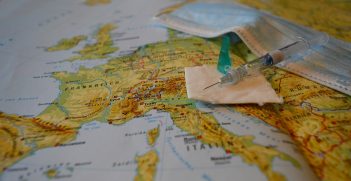Policy Dilemmas in a War on Disease

In responding to the dreaded Coronavirus outbreak, governments on a war footing face a policy dilemma: remedy or overkill? It is right and important, always, to be sensitive to the possibility that government action might do more harm than good.
Last week, US President Donald Trump tweeted about the COVID-19 pandemic: “We cannot let the cure be worse than the problem.” Some commentators perceived this remark as reflecting the president’s stubborn reluctance to implement tougher disease-control measures within the United States. However, the remark itself was a sensible one and any responsible policymaker would be hard-pressed to disagree.
In circumstances where a deadly disease is spreading rapidly through a population, there is a public-health benefit to be gained from promoting social distancing and enforcing travel restrictions. By thus reducing the overall risk of human-to-human transmission of the Coronavirus, the likelihood of local healthcare systems being overwhelmed by patients is reduced too. Even so, implementing these control measures also carries risks for society in terms of individual human rights and collective economic prosperity.
In an atmosphere of heightened public concern about a dreaded contagion, governments need to be especially careful in balancing a policy’s benefits and risks when deciding how best to respond. A strong appetite, fuelled by fear, for the protection afforded by certain disease-control practices should not preclude consideration of the downsides to those practices.
The closure of schools, for example, promises to slow the community-wide spread of the Coronavirus, but it can also make unavailable any healthcare or other essential workers who must then mind their own school-age children. In the longer term, where home-schooling options are unavailable or inadequate, those children’s education and life prospects are undermined.
Requiring workers to stay at home can likewise reduce the risk of viral infection, but in many places and professions, it is often difficult or impossible to implement remote-working arrangements. Thus, those workers’ economic productivity vanishes (along with the freedom to cherish family and friends living elsewhere), and the viability of their continued employment is jeopardised.
Restricting or prohibiting cross-border travel can slow the transnational progress of COVID-19 via travellers’ bodies, but it can also inhibit the sharing of much-needed medical expertise and supplies with disease-affected countries. Worse still, a government’s conspicuous emphasis on international border controls carries the risk of “externalising” the pandemic, leading to surges in xenophobia and the scapegoating of foreigners.
Finding the right balance of disease-control benefits and risks is inherently difficult, so failure in this quest is a realistic possibility. Thus, it makes sense to be wary of situations in which a government’s disease-control “cure” ends up inflicting more societal damage than the disease itself. Increasingly, this prospect is shaped by the way in which governments around the world are approaching the problem of COVID-19: as a crisis of national security.
The dread this disease inspires among national populations is attributable to more than just the amount of illness and death experienced and expected. A sense of crisis is stirred also by people’s visceral fear of involuntary exposure to an unfamiliar and invisible risk, the unavailability of effective vaccines or drug treatments, and the limited capacity of hospitals to care for the worst-affected victims.
In response to their citizens’ concerns, many governments have been anxious to take the situation seriously (and be seen to be doing so). Accordingly, recent political speeches on the pandemic have abounded with war metaphors and comparisons to wartime conditions. Hefty resources of militaries and other security institutions have been deployed.
However, the adoption of these security-oriented approaches to COVID-19 is not necessarily a good thing. Rather, a “remedy or overkill” policy dilemma potentially arises from this. On the one hand, ascribing security status to this pandemic might be a beneficial move to garner additional resources and executive powers for protecting population health (remedy). On the other hand, disease-control practices driven by a security imperative might be so heavy-handed as to be excessively injurious to national economies and human rights (overkill).
A government on a war footing is more prone to be over-zealous. In the name of “doing something,” emergency measures could be implemented which are ineffective, counterproductive, discriminatory, or otherwise unjust. Therefore, there is now also a non-disease risk to be managed: that disease-control efforts might imperil the interests of the very people they are supposed to protect. If this were to happen, a government’s response to the pandemic would become illegitimate.
Fear of contagion can immediately compromise the day-to-day human interaction which sustains society, and policymakers have a responsibility to respect and assuage that fear. Yet governments intent on restricting travel and social interactions must also remember their enduring responsibility to serve and protect a society that has earned its freedoms. Societies function and flourish largely because people have regular contact with and depend upon each other. To depart from this condition too drastically and for too long could make it harder eventually to recover from the ravages of this coronavirus crisis.
Christian Enemark is Professor of International Relations at the University of Southampton, UK, and the author of Biosecurity Dilemmas: Dreaded Diseases, Ethical Responses, and the Health of Nations (Georgetown University Press, 2017).
This article is published under a Creative Commons Licence, and may be republished with attribution.





